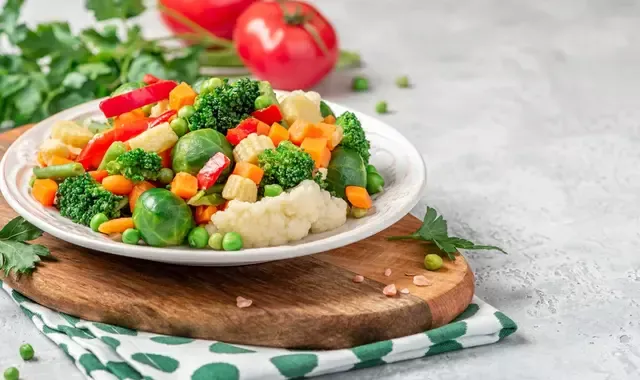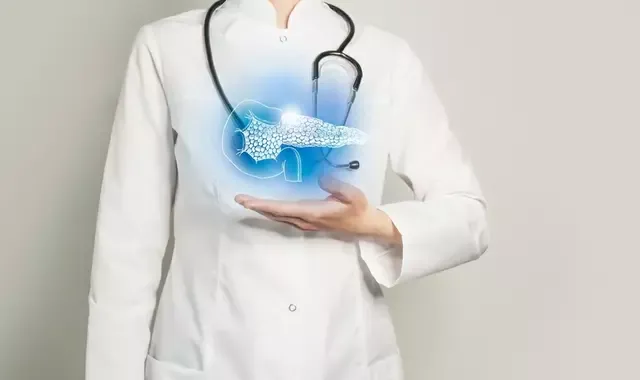Gas is a common digestive problem that can cause discomfort, bloating, and flatulence.
It occurs when the bacteria in your colon ferment the undigested carbohydrates in your food, producing gas as a byproduct.
While gas is a natural part of the digestive process, excessive gas can be uncomfortable and embarrassing.
Fortunately, there are certain foods that are least likely to cause gas, and incorporating them into your diet can help improve your digestion.
What Causes Gas and Bloating?
Before we dive into the foods least likely to cause gas, it's helpful to understand what causes gas in the first place.
Gas is produced in your digestive system as a result of the breakdown of carbohydrates and other undigested foods by bacteria in your gut.
Some of the most common sources of gas-producing foods include beans, lentils, broccoli, onions, and dairy products.
Excessive gas can be caused by a variety of factors, including:
- Swallowing air while eating or drinking
- Consuming gas-producing foods
- Certain medical conditions, such as lactose intolerance or celiac disease
- Stress or anxiety
Gas can be uncomfortable and embarrassing, but there are ways to reduce its occurrence.
One way is to avoid foods that are known to cause gas.
In this article, we'll explore the foods least likely to cause gas and provide tips for incorporating them into your diet.
Foods Least Likely to Cause Gas
While everyone's digestive system is different, there are some foods that are generally considered to be less likely to cause gas. Here are a few examples:
1. Lean proteins
Lean proteins, such as chicken, turkey, and fish, are low in fermentable carbohydrates and less likely to cause gas.
2. Low-FODMAP fruits
Fruits that are low in FODMAPs (fermentable oligosaccharides, disaccharides, monosaccharides, and polyols) are less likely to cause gas.
Some examples include bananas, blueberries, cantaloupe, grapes, and kiwi.
3. Cooked vegetables
While raw vegetables can be difficult to digest, cooked vegetables are easier on the digestive system.
Some examples of cooked vegetables that are less likely to cause gas include carrots, sweet potatoes, green beans, and zucchini.
4. Grains
Some grains are less likely to cause gas than others. Rice, quinoa, and gluten-free oats are good options for those looking to avoid gas.
5. Fermented foods
While some fermented foods, such as sauerkraut and kimchi, can cause gas, others, like yogurt and kefir, contain probiotics that can actually help improve digestion.
Incorporating Gas-Reducing Foods into Your Diet
If you're looking to reduce your gas intake, there are several ways to incorporate gas-reducing foods into your diet. Here are a few tips:
1. Start slowly
If you're not used to eating a lot of gas-reducing foods, start slowly to give your digestive system time to adjust.
2. Experiment with recipes
There are plenty of recipes that incorporate gas-reducing foods, so experiment with different combinations to find what works best for you.
3. Keep a food diary
Keeping a food diary can help you identify which foods are causing gas and which are not.
4. Consider a low-FODMAP diet
If you're struggling with gas and digestive discomfort, a low-FODMAP diet may be worth considering.
This type of diet eliminates or limits foods that are high in FODMAPs, which can help reduce gas and other digestive symptoms.
While gas is a common digestive issue, it doesn't have to control your life.
By incorporating gas-reducing foods into your diet and making a few lifestyle changes, you can reduce your symptoms and improve your overall digestive health.
Remember , everyone's digestive system is different, so be patient and experiment to find what works best for you.
FAQs
Q: What are some common symptoms of excessive gas?
Some common symptoms of excessive gas include bloating, belching, flatulence, abdominal pain or discomfort, and a feeling of fullness.
Q: What are some common gas-producing foods?
Some common gas-producing foods include beans, lentils, broccoli, onions, dairy products, carbonated beverages, and certain fruits like apples, pears, and peaches.
Q: How can I reduce gas and bloating?
There are several ways to reduce gas and bloating, including avoiding gas-producing foods, eating slowly and chewing your food thoroughly, drinking plenty of water, and exercising regularly.
Q: Can stress and anxiety cause gas and bloating?
Yes, stress and anxiety can affect digestion and contribute to gas and bloating. Practicing relaxation techniques, such as deep breathing or meditation, may help reduce these symptoms.
Q: When should I see a doctor about my gas and bloating?
If your gas and bloating are persistent or severe, or if you experience other symptoms like diarrhea, constipation, or weight loss, it's important to see a doctor to rule out any underlying medical conditions.



